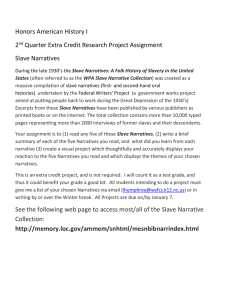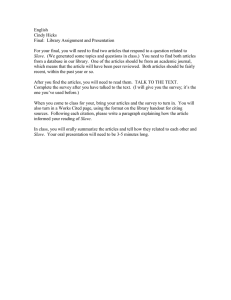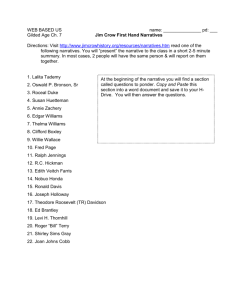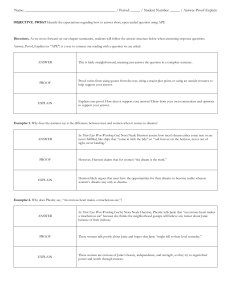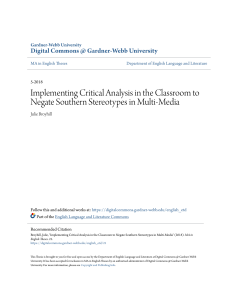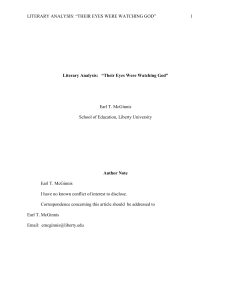i L. Adam Mekler English 102.09 Prof. Mekler
advertisement
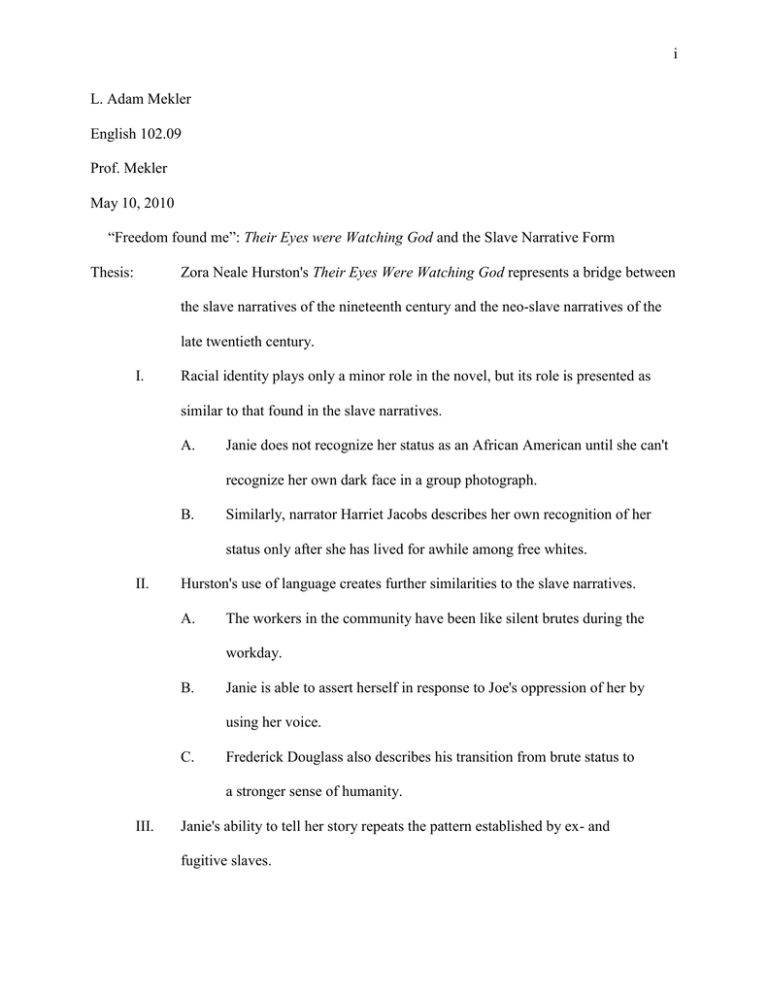
i L. Adam Mekler English 102.09 Prof. Mekler May 10, 2010 “Freedom found me”: Their Eyes were Watching God and the Slave Narrative Form Thesis: Zora Neale Hurston's Their Eyes Were Watching God represents a bridge between the slave narratives of the nineteenth century and the neo-slave narratives of the late twentieth century. I. Racial identity plays only a minor role in the novel, but its role is presented as similar to that found in the slave narratives. A. Janie does not recognize her status as an African American until she can't recognize her own dark face in a group photograph. B. Similarly, narrator Harriet Jacobs describes her own recognition of her status only after she has lived for awhile among free whites. II. Hurston's use of language creates further similarities to the slave narratives. A. The workers in the community have been like silent brutes during the workday. B. Janie is able to assert herself in response to Joe's oppression of her by using her voice. C. Frederick Douglass also describes his transition from brute status to a stronger sense of humanity. III. Janie's ability to tell her story repeats the pattern established by ex- and fugitive slaves. ii A. Telling her story in the courtroom gains her her freedom from jail. B. Telling her story to Pheoby allows her to establish a firmer connection to her community.

